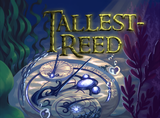GIBMAKER'S PROFILE
"College is fun as long as you don't die."
- L, Death Note
- L, Death Note

Search
 kentona
kentona
 [SCRIPTING] Pathfinding script
[SCRIPTING] Pathfinding script
Made a pathfinding script for XP because I felt like it. :P Or maybe it's for a top secret project. Guaranteed to navigate any type of obstruction in the minimum possible number of steps, without brute-forcing the entire map, but longer solutions will obviously take longer to devise. It will effectively brute-force the entire reachable area of the map before failing if a route doesn't exist, so it's best used in cases where a route is all ready known to exist.
Just give credit if you use :)
Just give credit if you use :)
#==============================================================================
# ** Pathfinder
# by Gibmaker
# just give credit if you use this
#------------------------------------------------------------------------------
# Efficiently finds a route to a target in the least number of steps
# Will return an empty move list if no route exists, but it will exhaust
# the entire map if no route exists which is time-consuming so it's best
# used in cases where a route is guaranteed to exist.
#
# Initialization:
# Pathfinder.new( start_x, start_y, goal_x, goal_y, details[] )
# "details" contains additional arguments that would be
# passed to a $game_map.passable? check. Typically a reference to the
# event if a route is being devised for an event.
#
# Public members:
# move_route : Path formatted as an RPG::MoveRoute
# first_direction : First direction of movement in the route (2/4/6/8)
# path_coords : List of coordinates of all tiles stepped through
# path_dirs : List of all directions moved (2/4/6/8)
#
# Simple step-toward-player implementation:
#
# event.force_move_route( Pathfinder.new(
# event.x, event.y, $game_player.x, $game_player.y, event ).move_route )
#==============================================================================
class Pathfinder
#============================================================================
# * Invariants
#============================================================================
DIRS = [2, 4, 6, 8]
#============================================================================
# * Publics
#============================================================================
attr_reader :path_coords
attr_reader :path_dirs
#============================================================================
# * Initialize
# The path is filled out immediately
#============================================================================
def initialize(start_x, start_y, goal_x, goal_y, details = [], known_max = nil)
@start_x = start_x
@start_y = start_y
@goal_y = goal_y
@goal_x = goal_x
@details = [details].flatten
# Initialize working variables
# @steps plots the number of actual steps that were taken to reach a spot
@steps = Table.new($game_map.width, $game_map.height)
# Holds all nodes that are open but not visited yet
@live_nodes = {}
# Set constraint
if known_max
# Explore every possible route within the given maximum distance
@constraint = { :type => :known_maximum, :value => known_max }
else
# No known route length yet, so prefer stepping toward the target
@constraint = { :type => :minimum_expected_distance }
end
# Set the starting position
open(start_x, start_y, 1)
# Find a path!
if program_path
set_path_coords
# Check for a path using the known_max paradigm; compare
if @constraint[:type] == :minimum_expected_distance
alt_path = Pathfinder.new(@start_x, @start_y, @goal_x, @goal_y,
@details, length )
if alt_path.length < length
@path_coords = alt_path.path_coords
end
end
set_path_dirs
else
@path_coords = []
@path_dirs = []
end
# Clean up temp variables
@steps = @live_nodes = nil
end
#============================================================================
# * Distance to goal
# The minimum possible steps to reach the goal + 1, assuming there are no
# obstacles in the way.
# +1 because the default starting value for the table is 0 in all positions
# so the goal tile itself will receive a value of 1
#============================================================================
def distance(x, y)
(x - @goal_x).abs + (y - @goal_y).abs + 1
end
#============================================================================
# * Coords at
#============================================================================
def coords_at(x, y, dir)
return x + (dir == 6 ? 1 : dir == 4 ? -1 : 0),
y + (dir == 2 ? 1 : dir == 8 ? -1 : 0)
end
#============================================================================
# * Passable from tile
#============================================================================
def passable?(x, y, dir)
other_x = x + (dir == 6 ? 1 : dir == 4 ? -1 : 0)
other_y = y + (dir == 2 ? 1 : dir == 8 ? -1 : 0)
return ($game_map.valid?(other_x, other_y) and
$game_map.passable?( x, y, dir, *@details ) and
$game_map.passable?( other_x, other_y, 10-dir, *@details ))
end
#============================================================================
# * Open tile for checking
# Assumption is that this tile is unexplored and not all ready open
#============================================================================
def open(x, y, steps)
@steps[x, y] = steps
dist = distance(x, y)
unless distance_set = @live_nodes[dist]
distance_set = []
@live_nodes[dist] = distance_set
end
distance_set.push( [x, y] ) unless distance_set.find{ |node| node == [x, y]}
end
#============================================================================
# * Close tile
# Assumption is that the tile is validly open
#============================================================================
def close(x, y)
# Remove the node from the distance set.
dist = distance(x, y)
distance_set = @live_nodes[dist]
distance_set.delete( distance_set.find { |node| node == [x, y] } )
# Remove the set if it's empty
@live_nodes.delete(dist) if distance_set.empty?
end
#============================================================================
# * All nodes
#============================================================================
def all_nodes
set = []
@live_nodes.values.each { |value| set += value }
set
end
#============================================================================
# * Find path
# Explore the environment and determine if a path is available, programming
# the @steps table with the number of steps required to reach each position
#============================================================================
def program_path
# Run until there are no more live nodes.
# Running out of live nodes means there was no path.
until @live_nodes.empty?
# If the goal has been opened (distance of 1)
if (minimum_distance = @live_nodes.keys.min) == 1
return true
end
# For all open tiles with the smallest distance to the target ...
case @constraint[:type]
when :minimum_expected_distance
check_set = @live_nodes[ minimum_distance ].dup
when :known_maximum
check_set = all_nodes
end
check_set.each { |node|
# Open the tiles in all four directions, if it is possible to pass
# in that direction
DIRS.each { |dir|
if passable?( node[0], node[1], dir )
x, y = *coords_at( node[0], node[1], dir )
# If there is a max distance constraint
if @constraint[:type] == :known_maximum
# Thanks to applying +1 to distance and steps (in order to use
# 0 to represent an unvisited position) there are a bunch of
# +1 corrections in this comparison, which combine into the +3
# adjustment.
next if distance(x, y) >= @constraint[:value] - @steps[ *node ] + 3
end
# If the tile has not all ready been opened, open it now
if @steps[x, y] == 0 or @steps[x, y] > @steps[ *node ] + 1
open( x, y, @steps[ *node ] + 1 )
end
end
}
close *node
}
end
return false
end
#============================================================================
# * Set path_coords
# With @steps programmed, start at the goal and work backwards to find
# a valid path. Assumes that there is such a path.
#============================================================================
def set_path_coords
# Set the coord-based path
@path_coords = []
x, y = @goal_x, @goal_y
while ( [x, y] != [@start_x, @start_y] ) do
# Add this point to the path
@path_coords.push( [x, y] )
choices = []
min_dist = nil
DIRS.each { |dir|
# Possible to step in this direction?
next unless passable?( x, y, dir )
# Get the coords
check_x, check_y = *coords_at(x, y, dir)
# Unexplored tile?
next if @steps[check_x, check_y] == 0
# Not a backtrack?
next unless @steps[check_x, check_y] < @steps[x, y]
# Process choice
if min_dist.nil? or @steps[check_x, check_y] <= min_dist
choices.clear
min_dist = @steps[check_x, check_y]
end
if @steps[check_x, check_y] == min_dist
choices.push( [check_x, check_y ] )
end
}
x, y = *choices[rand( choices.size )]
end
@path_coords.push( [@start_x, @start_y] )
@path_coords.reverse!
end
#============================================================================
# * Set path_dirs
# With @path_coords programmed, create a path consisting of directions.
#============================================================================
def set_path_dirs
@path_dirs = []
if @path_coords.size > 1
0.upto(@path_coords.size - 2) { |i|
here, there = @path_coords[i], @path_coords[i + 1]
if here[0] == there[0]
@path_dirs.push( here[1] > there[1] ? 8 : 2 )
else
@path_dirs.push( here[0] > there[0] ? 4 : 6 )
end
}
end
end
#============================================================================
# * The length of the path
#============================================================================
def length
@path_coords.length - 1
end
#============================================================================
# * The first direction of passage
#============================================================================
def first_direction
@path_dirs[0]
end
#============================================================================
# * Move route
#============================================================================
def move_route
route = RPG::MoveRoute.new
route.list.clear
@path_dirs.each { |dir|
command = RPG::MoveCommand.new
command.code = dir / 2
route.list.push command
}
route
end
end
 A good mp3 encoder?
A good mp3 encoder?
Since RMXP can stream sound files as long as they're in mp3 or wma format I want to find a free program that converts wav files to mp3 or wma format. I've tried many different ones but there's always something wrong with them. In Kav's tutorial (http://rpgmaker.net/tutorials/167/) he suggested WavePad Sound Editor, which would be perfect except that it adds about .1 seconds of silence to the beginning and end of the file during conversion, which screws up any samples that are supposed to loop. And I don't want to leave my music samples as wav files, since then the game freezes for a second as it has to load the entire sample before it plays. Does anyone know of any mp3 converters that are good and don't do this?
 Too many games! ;_;
Too many games! ;_;
Does anyone else feel overwhelmed by the number of games that go through here? I guess you have to choose what you put your time into but it usually takes me at least a few weeks to finish a game. So many of the Featured games have come and gone and I'd love to play them all but you just can't. What RM games have people wanted to play but haven't because of lack of time? For me it's pretty much all the featured games of the last few months. I have unfinished games in Total Chaos and Flashbulb Madness right now.
Pages:
1


















